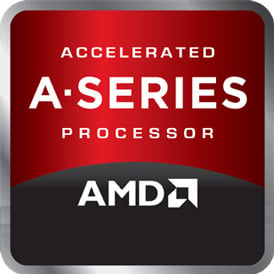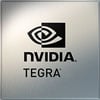
AMD A8-5600K Benchmark, Test and specs
Last updated:
The AMD A8-5600K was released in Q3/2012 and has 4 cores. The processor can process 4 threads simultaneously and uses a mainboard with the socket FM2. In the Geekbench 5 benchmark, the AMD A8-5600K achieved a result of 501 points (single-core) or 1,396 points (multi-core).

| Name: | AMD A8-5600K |
|---|---|
| Family: | AMD A (112) |
| CPU group: | AMD A8-5000 (3) |
| Architecture: | Trinity (Piledriver) |
| Segment: | Desktop / Server |
| Generation: | 2 |
| Predecessor: | -- |
| Successor: | -- |
CPU Cores and Base Frequency
The AMD A8-5600K has 4 cores. The clock frequency of the AMD A8-5600K is 3.60 GHz (3.90 GHz). An initial performance assessment can be made using the number of CPU cores.
| CPU Cores / Threads: | 4 / 4 |
|---|---|
| Core architecture: | normal |
| Cores: | 4x |
| Hyperthreading / SMT: | No |
|---|---|
| Overclocking: | Yes |
| Frequency: | 3.60 GHz |
| Turbo Frequency (1 Core): | 3.90 GHz |
| Turbo Frequency (4 Cores): | 3.90 GHz |
Internal Graphics
The AMD A8-5600K has an integrated graphics that the system can use to efficiently play back videos. The AMD A8-5600K has the AMD Radeon HD 7560D installed, which has 4 streaming multiprocessors (256 shaders).
| GPU name: | AMD Radeon HD 7560D |
|---|---|
| GPU frequency: | 0.76 GHz |
| GPU (Turbo): | No turbo |
| Compute units: | 4 |
| Shader: | 256 |
| Hardware Raytracing: | No |
| Release date: | Q3/2012 |
| Max. displays: | 2 |
|---|---|
| Generation: | 4 |
| Direct X: | 11 |
| Technology: | 32 nm |
| Max. GPU Memory: | 2 GB |
| Frame Generation: | No |
Hardware codec support
Processors with integrated graphics can process video codecs faster. Support for modern codecs can significantly increase system efficiency during video playback.
| h265 / HEVC (8 bit): | No |
|---|---|
| h265 / HEVC (10 bit): | No |
| h264: | Decode |
| VP8: | No |
| VP9: | No |
| AV1: | No |
|---|---|
| AVC: | Decode |
| VC-1: | Decode |
| JPEG: | Decode / Encode |
Memory & PCIeThe AMD A8-5600K supports a maximum of memory. Depending on the mainboard, the processor can use a maximum of 2 (Dual Channel) memory channels. This results in a maximum bandwidth of the main memory of 29.9 GB/s. |
|
| Memory type: | Memory bandwidth: |
|---|---|
| DDR3-1866 | 29.9 GB/s |
| Max. Memory: | |
| Memory channels: | 2 (Dual Channel) |
| ECC: | No |
| PCIe: | |
| PCIe Bandwidth: | -- |
Thermal ManagementThe AMD A8-5600K has a TDP of 100 W. Based on the TDP, the system manufacturer can and must adapt the cooling solution to the processor. |
|
|---|---|
| TDP (PL1 / PBP): | 100 W |
| TDP (PL2): | -- |
| TDP up: | -- |
| TDP down: | -- |
| Tjunction max.: | -- |
Technical details
Modern production reduces the waste heat of a processor and increases its efficiency. The AMD A8-5600K is made in 32 nm and has 4.00 MB cache.
| Technology: | 32 nm |
|---|---|
| Chip design: | |
| Socket: | FM2 |
| L2-Cache: | -- |
| L3-Cache: | 4.00 MB |
| AES-NI: | Yes |
| Operating systems: | Windows 10, Linux |
| Virtualization: | AMD-V |
|---|---|
| Instruction set (ISA): | x86-64 (64 bit) |
| ISA extensions: | SSE4a, SSE4.1, SSE4.2, AVX, FMA3, FMA4 |
| Release date: | Q3/2012 |
| Release price: | 95 $ |
| Part Number: | -- |
| Documents: | -- |
Rate this processor
Benchmark results

The benchmark results for the AMD A8-5600K have been carefully checked by us. We only publish benchmark results that have been created by us or that have been submitted by a visitor and then checked by a team member. All results are based on and fullfill our benchmark guidelines.
Geekbench 5, 64bit (Single-Core)
Geekbench 5 is a cross plattform benchmark that heavily uses the systems memory. A fast memory will push the result a lot. The single-core test only uses one CPU core, the amount of cores or hyperthreading ability doesn't count.

|
AMD Phenom II X6 1055T
6C 6T @ 3.30 GHz |
||

|
Intel Celeron 2970M
2C 2T @ 2.20 GHz |
||

|
Intel Xeon E5-2603 v4
6C 6T @ 1.70 GHz |
||
|
|
AMD A8-5600K
4C 4T @ 3.90 GHz |
||

|
Intel Pentium Silver N5030
4C 4T @ 3.10 GHz |
||

|
AMD FX-8320E
8C 8T @ 4.00 GHz |
||

|
Qualcomm Snapdragon 675
8C 8T @ 2.00 GHz |
||
Geekbench 5, 64bit (Multi-Core)
Geekbench 5 is a cross plattform benchmark that heavily uses the systems memory. A fast memory will push the result a lot. The multi-core test involves all CPU cores and taks a big advantage of hyperthreading.

|
AMD Athlon II X4 760K
4C 4T @ 4.10 GHz |
||

|
AMD Phenom II X4 955
4C 4T @ 3.20 GHz |
||

|
Intel Core i3-5157U
2C 4T @ 2.50 GHz |
||
|
|
AMD A8-5600K
4C 4T @ 3.90 GHz |
||

|
Intel Core i5-680
2C 4T @ 3.60 GHz |
||

|
AMD FX-4300
4C 4T @ 3.80 GHz |
||

|
AMD Athlon II X4 740
4C 4T @ 3.70 GHz |
||
Cinebench R20 (Single-Core)
Cinebench R20 is the successor of Cinebench R15 and is also based on the Cinema 4 Suite. Cinema 4 is a worldwide used software to create 3D forms. The single-core test only uses one CPU core, the amount of cores or hyperthreading ability doesn't count.

|
Intel Pentium Silver J5005
4C 4T @ 2.80 GHz |
||

|
AMD A9-9425
2C 2T @ 3.70 GHz |
||

|
AMD FX-6300
6C 6T @ 4.10 GHz |
||
|
|
AMD A8-5600K
4C 4T @ 3.90 GHz |
||

|
Intel Celeron J4125
4C 4T @ 2.70 GHz |
||

|
Intel Core M-5Y10c
2C 4T @ 2.00 GHz |
||

|
Intel Core i5-2520M
2C 4T @ 3.20 GHz |
||
Cinebench R20 (Multi-Core)
Cinebench R20 is the successor of Cinebench R15 and is also based on the Cinema 4 Suite. Cinema 4 is a worldwide used software to create 3D forms. The multi-core test involves all CPU cores and taks a big advantage of hyperthreading.

|
Intel Core i7-5600U
2C 4T @ 3.10 GHz |
||

|
Intel Celeron G5905
2C 2T @ 3.50 GHz |
||

|
Intel Core i3-1000NG4
4C 8T @ 3.20 GHz |
||
|
|
AMD A8-5600K
4C 4T @ 3.90 GHz |
||

|
AMD Phenom II X4 945
4C 4T @ 3.00 GHz |
||

|
Intel Celeron N5100
4C 4T @ 2.20 GHz |
||

|
Intel Core i7-8500Y
2C 4T @ 2.70 GHz |
||
iGPU - FP32 Performance (Single-precision GFLOPS)
The theoretical computing performance of the internal graphics unit of the processor with simple accuracy (32 bit) in GFLOPS. GFLOPS indicates how many billion floating point operations the iGPU can perform per second.

|
UNISOC T770
ARM Mali-G57 MP4 @ 0.78 GHz |
||

|
Intel Core i7-13650HX
Intel UHD Graphics 13th Gen (16 EU) @ 1.55 GHz |
||

|
Nintendo Switch
NVIDIA Tegra X1 (Maxwell) @ 0.77 GHz |
||
|
|
AMD A8-5600K
AMD Radeon HD 7560D @ 0.76 GHz |
||

|
Qualcomm Snapdragon 810
Qualcomm Adreno 430 @ 0.60 GHz |
||

|
AMD A8-5500B
AMD Radeon HD 7560D @ 0.76 GHz |
||

|
AMD A8-5500
AMD Radeon HD 7560D @ 0.76 GHz |
||
Estimated results for PassMark CPU Mark
Some of the CPUs listed below have been benchmarked by CPU-monkey. However the majority of CPUs have not been tested and the results have been estimated by a CPU-monkey’s secret proprietary formula. As such they do not accurately reflect the actual Passmark CPU mark values and are not endorsed by PassMark Software Pty Ltd.

|
Intel Core i5-4200M
2C 4T @ 3.10 GHz |
||

|
Intel Core i3-6157U
2C 4T @ 2.40 GHz |
||

|
Intel Core i7-920
4C 8T @ 2.66 GHz |
||
|
|
AMD A8-5600K
4C 4T @ 3.90 GHz |
||

|
Intel Celeron G5905
2C 2T @ 3.50 GHz |
||

|
Intel Celeron G5920
2C 2T @ 3.50 GHz |
||

|
Intel Core i7-860S
4C 8T @ 2.53 GHz |
||
CPU-Z Benchmark 17 (Multi-Core)
The CPU-Z benchmark measures a processor's performance by measuring the time it takes the system to complete all benchmark calculations. The faster the benchmark is completed, the higher the score.

|
Intel Core i3-550
2C 4T @ 3.20 GHz |
||

|
Intel Pentium G4400
2C 2T @ 3.30 GHz |
||

|
Intel Core i7-3537U
2C 4T @ 2.00 GHz |
||
|
|
AMD A8-5600K
4C 4T @ 3.60 GHz |
||

|
Intel Core i5-3210M
2C 4T @ 2.50 GHz |
||

|
Intel Core i5-2520M
2C 4T @ 2.50 GHz |
||

|
Intel Core i5-4300U
2C 4T @ 1.90 GHz |
||
Cinebench R15 (Multi-Core)
Cinebench R15 is the successor of Cinebench 11.5 and is also based on the Cinema 4 Suite. Cinema 4 is a worldwide used software to create 3D forms. The multi-core test involves all CPU cores and taks a big advantage of hyperthreading.

|
Intel Core i3-3210
2C 4T @ 3.20 GHz |
||

|
Intel Celeron J4115
4C 4T @ 2.40 GHz |
||

|
Intel Core i5-6300U
2C 4T @ 2.60 GHz |
||
|
|
AMD A8-5600K
4C 4T @ 3.90 GHz |
||

|
Intel Core i7-6560U
2C 4T @ 2.60 GHz |
||

|
Intel Core i5-3380M
2C 4T @ 2.90 GHz |
||

|
AMD FX-9830P
4C 4T @ 3.40 GHz |
||
Benchmarks

Geekbench 5 (SC)
2,488 entries
2,488 entries

Geekbench 5 (MC)
2,461 entries
2,461 entries

Cinebench R20 (SC)
656 entries
656 entries

Cinebench R20 (MC)
604 entries
604 entries

FP32 SP (iGPU)
2,042 entries
2,042 entries

PassMark CPU-Mark
2,392 entries
2,392 entries

CPU-Z Benchmark 17 (MC)
733 entries
733 entries

Cinebench R15 (MC)
1,101 entries
1,101 entries

Geekbench 3 (SC)
942 entries
942 entries

Geekbench 3 (MC)
938 entries
938 entries

Cinebench R11.5 (SC)
825 entries
825 entries

Cinebench R11.5 (MC)
836 entries
836 entries

Cinebench R11.5 iGPU
383 entries
383 entries
Description of the processor
The AMD A8-5600K is a desktop/server processor released in Q3 2012 with a release price of $95. The processor uses a mainboard with the FM2 socket. It is from the 2nd generation of the AMD A series and has 4 cores with 4 threads. The processor is based on a normal architecture and does not use hyperthreading, but can be overclocked. The clock frequency is 3.60 GHz, the turbo clock frequency with one core is 3.60 GHz and the turbo clock frequency with 4 cores is 3.90 GHz.The AMD A8-5600K has integrated graphics. It uses the main memory as graphics memory, and the AMD Radeon HD 7560D has been integrated. The clock frequency for the iGPU is 760 MHz, it has 4 units and works with 256 shaders. The processor supports Direct X 11 and was manufactured in 32nm. The maximum memory is 2 GB.
The processor can decode h264, AVC, VC-1 and decode and encode JPEG. The memory type is DDR3-1866 and the processor has 2 memory channels. The thermal design power (TDP) of the processor is 100 W.
The processors L3 cache is 4.00 MB. The architecture is based on Trinity (Piledriver).
The processor scored 193 points in the Cinebench R20 (single-core) test, and 611 points in the R20 (multi-core) test.
The processor scored 501 points in the Geekbench 5, 64-bit (single-core) test, and 1,396 points in the Geekbench 5, 64-bit (multi-core) test. The processor achieved 711 points in the CPU-Z benchmark 17 (multi-core) test.
The iGPU has an FP32 processing power (single precision) of 389 GFLOPS. Expected results for the PassMark CPU Mark are 2,799 points for the processor. It scored 280 points in the Cinebench R15 (multi-core) test. In the Geekbench 3, 64-bit (single-core) test it scores 2,011 points, in Geekbench 3, 64-bit (multi-core) it scores 4,513 points.
Popular comparisons
back to index




